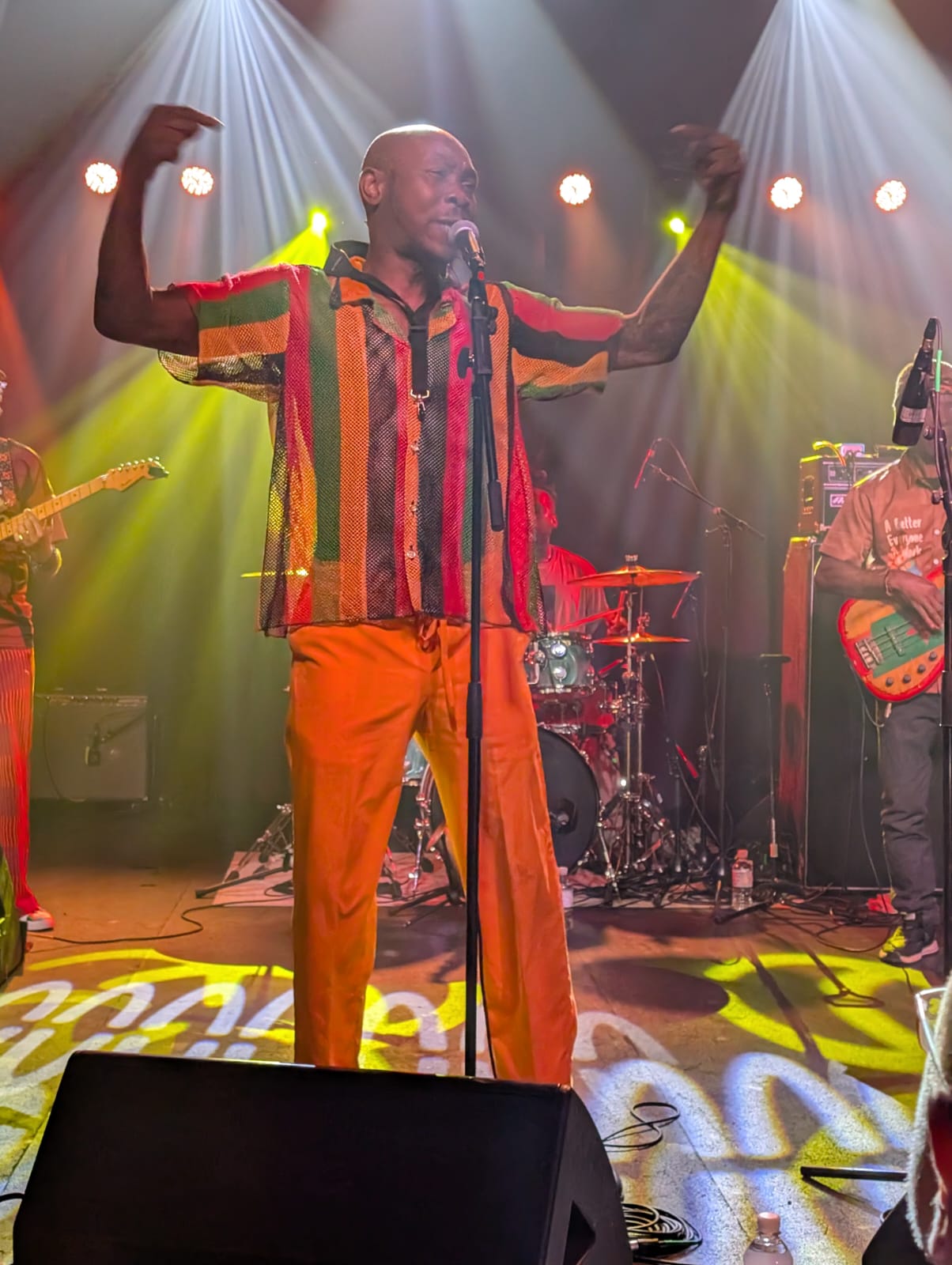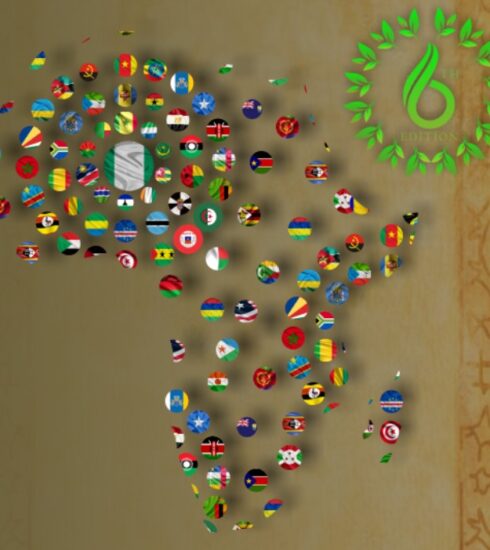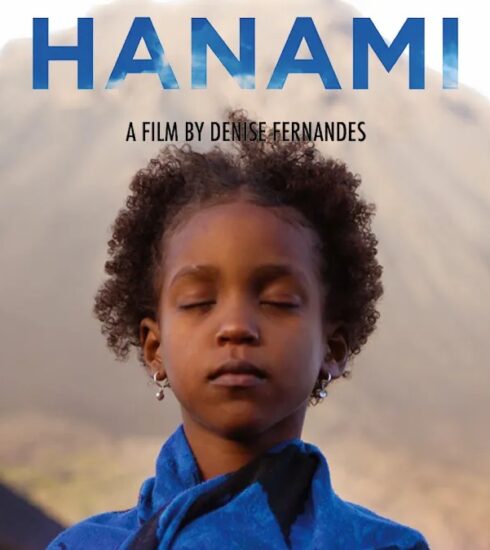Seun Kuti is a Nigerian musician, singer, and songwriter renowned for his captivating performances and socially conscious music. He is the youngest son of the legendary Afrobeat pioneer Fela Kuti and has spent most of his life preserving and extending his father’s political and musical legacy as the leader of his father’s former band Egypt 80.
On the back of his album, Heavier Yet (Lays The Crownless Head), Kuti and his band have been touring the United States showcasing how the sonic elements of jazz and improvisation gave birth to the Afrobeat genre. They have performed in various U.S. cities before their recent stop in Denver, Colorado.
Kabongo S.P. of Afrik Digest Magazine sat down with him after his recent performance in Denver where he talked about his life, activism, his father’s legacy, politics in Africa and many more.

Lessons learnt from my father (Fela Kuti)
For me, the most important lesson I can say I learnt from him is to always understand who we are and have pride in our identity as Africans. I think that’s the biggest and most important lesson.
Honoring your father’s legacy and stepping out from his shadow
I’ve never made music from that perspective. There’s never been a time when I’m making my music and I’m thinking oh! Am I trying to be myself? And no, I’m not at war with my identity in any way. You know, of course, I’m my father’s child. I acknowledge that, but I don’t let it factor in too much when I’m working. I just try to make music the way it makes me happy, and I’m sure if I’m satisfied then everything is okay. All those other things are like looking at my father’s legacy and trying to match up with the things he did are distractions that prevent people from enjoying the moments and experiences I create.
Activism, Connection with Nigerian culture and its influence on his music
Well, I don’t think there’s any aspect of the culture that I am most connected to. My own existence today is a journey of me understanding the entirety of my culture and how it relates to me today. So there’s no part of my culture that I’m most connected to or distant from. I don’t pick and choose what part of my culture I like. It’s not healthy to bring culture into aspects of what I do and choose this side and abandon this side and choose that side. No, it doesn’t work that way. I’m a Yoruba boy from Nigeria, but I infuse something from every other ethnic group in Nigeria into my music. It could be a drumming style from the middle belt or dance steps from the East, there’s always an element of every Nigerian ethnic culture in my music and performances. I have moved beyond activism. I believe people are either revolutionary or they are not revolutionary. So, yeah I practice revolutionary politics in my country, so that for me is my own engagement with what maybe you call activism. For me, its revolutionary engagement.
Embracing the calling of Afrobeats
Well you know I’ve been playing music for a long time. I’ve been in my band since I was eight years old. So, I wouldn’t say I decided when I was eight that I was definitely going to play music. When I was growing up, I was good in school and I enjoyed the study of economics so much I thought when I grow up I’ll become an economist. But then, I realized economists have to go to work in the morning every day. And as a kid even though I was really good at school, I hated having to wake up in the morning to go to school. So, I realized that if I get this job as an economist, I’ll have to wake up every day for the rest of my life every morning. I’m like damn it, no economist aspirations anymore. I was also good at sports. I captained my high school football team and played football very well and there was a time I thought of pursuing a career in football. Even though music came to me naturally, I didn’t see myself doing it professionally. Music was just something I did because I could do it. I also came to realize that even if I play football, at the minimum you are done at 35. So I asked myself, what do you want to do for the rest of your life? So, when I was in high school, I was like, you know, what, I’m just gonna play music because this is the only job that will allow me to wake up when I want to wake up, and it’s something I can do for the rest of my life. So that was how I, you know, stuck to music and the rest as they say is history.
Biggest challenge you’ve faced in becoming your own person
Is anybody really their own person? Being your own person as an African man, is something that they put too much emphasis on because it removes you from ancestral recognition. It makes people forget their past and those who came before them. Nobody comes from nothing. Nobody is good or great by chance. All the rich and powerful people in the world are rich and powerful because of their parents or ancestry. Nothing comes from nothing in this world and it is important that Africans stop buying into this narrative of being your own man going it alone. As an African man, it is impossible for you to be self-made. Not that it is hard, It is impossible. Because no matter what you want to do, first of all, some certain African man somewhere has died for you to be able to do that thing. Want to be a journalist, a musician, a doctor or lawyer? Some people blazed the trail in that profession first so others will have pointers or guidelines on how to go about it. Even for us as African people to be here in the United States, having this interview here in Colorado, a lot of African people died here for us as black men to be able to walk and prosper on these lands.So there’s nothing we do as African people that we are doing on our own. It is because people have made it so for us. Then we bring this word ‘’being our own person’’ and we want to erase the sacrifices those before us have made so that we don’t shoulder the responsibility of doing the same for the next generation. We start telling ourselves i made it on my own therefore anybody else can make it themselves.That is something i tend to see a lot in Africans, it’s why majority of Africans find it hard to build generational wealth. Asians and to an extent Europeans understand this better than we Africans. So I’ve never been one to shy away from coming from something because I appreciate the sacrifice of my ancestors. My dad, my grandmother, because without my grandmother my father will not be who he was. (Seun Kuti’s grandmother was Funmilayo Ransome-Kuti, who was a prominent political activist, suffragist, and women’s rights activist. She was also the first Nigerian woman to drive a car).
That being said, from the moment I released my first album I had already created my own thing. My father wasn’t there to write the songs for me. He had already passed on by the time I started. He doesn’t play the sex for me, neither does he compose for me. So why would anyone think that me making my own music is not me doing my own thing. That I have not become my own person. Yeah, so for me those questions i don’t think are really relevant.
Evolution of my music and new elements in Afrobeats
For me as an artist, I’ve always wanted my music to represent who I am and where I’m from. Artistically and personally as a human being and as a musician I want every album I make to reflect that position because music is a bit of science. Not a bit, music is science in a certain way. You’re like a scientist in a lab when you work on your art like you’re experimenting and keep trying to create new stuffs and try as much as possible to be innovative. You advance yourself and for me that’s what goes on. And it’s forever work, nobody’s done. That’s what I love about music, nobody’s done. You’re never done. There’s always something new, always another level to try to get to. For me every time I’m making those next steps I want it to project on my records. So definitely that’s how my music evolves. Every album I make feels like a stamp of where I am. It’s a honest stamp of where I am as a musician and a human being at that moment in time. I have added my own ideas. You know, the way I like to compose my own songs and things like that. You know, as an artist, what I’ve done for all my career is that my songs have represented my truest feelings and expressions. The other things are things for critiques and people that don’t really understand my kind of music. When I read a lot of articles about my record, they talk about all these kinds of things, but I don’t take it seriously. You know, he’s made the music more funky, he’s made the music more soulless. He’s added this or added that, for me as an artist those are not the things that make me happy when I’m making music, but those are the things that people like to see and talk about. That’s the world for you. I only ask myself one question when I’m making music. Are you happy with what you’ve just done and does this represent you? And if the answer is yes then every other thing is irrelevant.
Uniqueness of my music
Whenever I listen to my own songs, I’m like yeah, this is me. I don’t see anyone out there replicating what I do or what I have done. The way I play my sax is different, my beats are different even the way I try to pass my message across is different. My message is unique to me not that it’s new or that it hasn’t passed it before, but the way I deliver the message of African liberation is unique. I don’t see other artists that talk about the things I talk about in the way I talk about them or from the perspective that I talk about them. So that’s unique enough for me.
Meeting the expectations of fans
I have always to the best of my ability given 100% whenever I perform or produce music. Whenever I have a live performance, expect the best from me always. I don’t settle for less. I also try to use my shows as a way to build bridges and start conversations that go beyond the concerts. I want my audience to also try and leave my show with a sense of responsibility to themselves and to humanity.
Preparation for live concerts
For me, it’s already ingrained in me. It’s something I know like the back of my hand. It’s already second nature for me. A lot of work also goes on behind the scenes for sure. The time to do the work for the show is not two hours before the show. The time to prepare for the show is not one hour before the show, not even two weeks before the show. It’s months and years of planning and hard work. That is the real hard work that nobody sees behind the scenes. the rehearsals and constant tweaking and fine tuning, that’s where the real preparation is. By the time we get to venues and we are doing tours, all that preparation that has been done over months and years just kicks in and everything falls in place seamlessly.
Future evolution of Afrobeats
Honestly I don’t know because I don’t really do this future prediction thing. I can say though that our art should represent more of our reality. When it comes to arts one cannot really predict what the future holds. If in the 90s you told me that rap music will exist where people don’t use words, I’ll tell you that’s impossible. Nobody would have believed that. But look at it today. The truth is nobody knows what the future holds for afrobeats. The best we can do as artists is to continue to improve ourselves so that our craft can stay relevant.
Future collaboration with Nigerian and International artistes
There are lots of Nigerian artists I still haven’t worked with, but probably will work with in future. If the chance arises. And I’ve worked with many already. Internationally there are a couple of them I would like to work with but it’s best if i don’t mention any names yet.
Advice for young African Musicians
The music industry now is different. The only advice anybody needs is determination.Gone are the days where I would say, oh, you need to be good at your instrument or train yourself to be this or that, these days that doesn’t count for anything. If you really believe in your artistry or your vision that all you have to do is to be determined. The only thing that separates the ones that make it from the ones that don’t is determination. How long, how hard are you willing to just keep banging until the world begins to hear you because there’s so many artists out there trying to do the same thing. Try to break through in their own way and every day a million new musicians pop up.
Getting a break in the music industry
Remember I said earlier that nobody comes from nothing and that applies to me in this case. My dad had done the work, Manu Dibando had done the work, Youssou N’Dour had also done the work. I am just picking it up and doing my bit. I stand on the shoulders of the Salif Keita’s and all these other great African musicians. My brother Femi Kuti is also in that bracket. We need to understand that so many people have done that work that has created that opportunity for others where people are able to recognize what you’re doing and probably go okay, fine, we’ll play your music on this radio or come perform at this show. I won’t lie, being Fela’s son is an advantage and has opened so many doors for me but it comes with its own disadvantages as well. Because of my background and the standards my forebears have set, they find it difficult to cut me some slack because they expect everything I do to be perfect.






